Nobel Laureates with Indian Origins – Part 3
- September 4, 2023

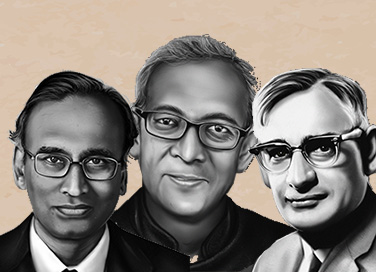
Nobel Laureates with Indian Origins – Part 3
- September 4, 2023
By Srinidhi Murthy
As part of our ongoing series, read about some more Nobel Laureates with Indian origins, whose Indian roots, education or heritage have helped them earn international acclaim.
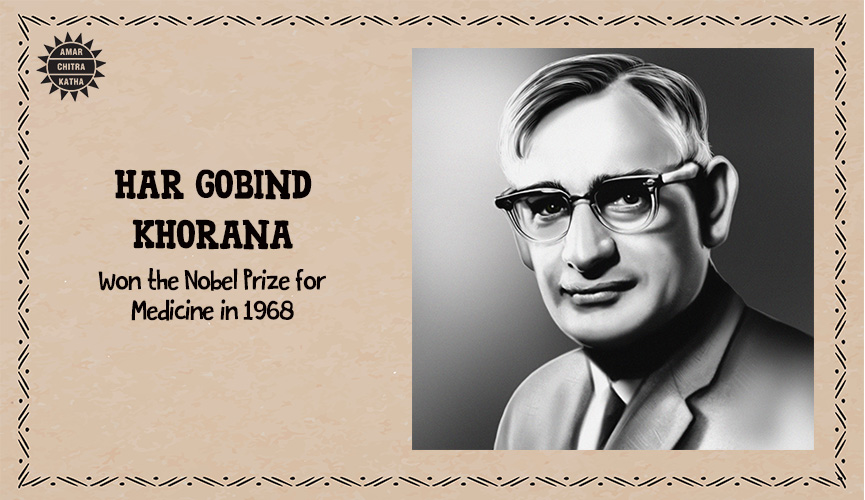
Born in 1922, in Raipur village in Multan, Punjab (present-day Pakistan), Har Gobind Khorana was the youngest among his four siblings. His father, who was a village agricultural taxation clerk in the British government, was dedicated to educating all his children from an early age. The Khorana family was the only literate family in the village at that time, inhabited by about a hundred people. Khorana advanced his later education through scholarships, and he obtained his bachelor’s and master’s degree at the Punjab University, Lahore, in 1943 and 1945, respectively. He lived in British India till 1945 and then moved to England, where he got an opportunity to study organic chemistry at the University of Liverpool. Khorana moved to the United States in 1960, when he received an opportunity to join as a co-director of the Institute for Enzyme research at the University of Wisconsin, Madison. During his tenure at the university, he began his work on the genetic code, which led to his sharing the Nobel Prize in Medicine with his colleagues, Robert W. Holley and Marshall W. Nirenberg, in 1968. Khorana was granted American citizenship in 1966. He was awarded the Nobel Prize with Holley and Nirenberg, two years later for ‘their interpretation of the genetic code and its function in protein synthesis’. He also got recognition for his work in the construction of the first artificial gene in 1972. Khorana breathed his last on 9 November 2011, at the age of 89, in Concord, Massachusetts, United States.
To receive more such stories in your Inbox & WhatsApp, Please share your Email and Mobile number.
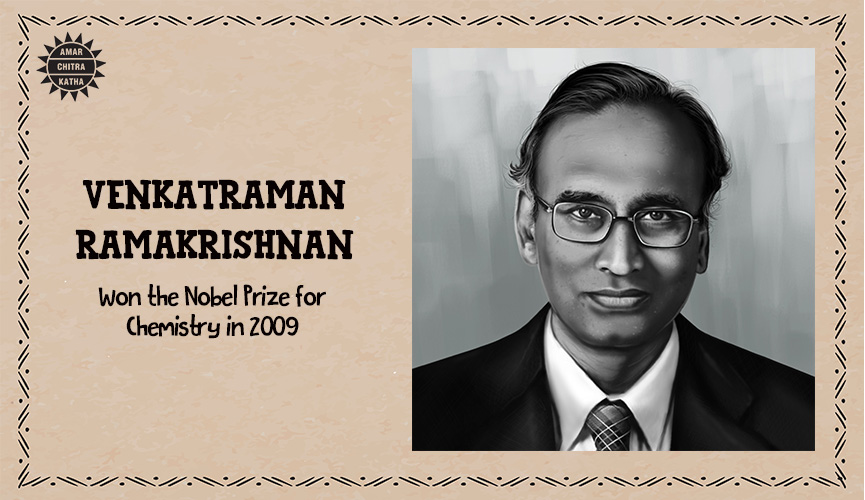
Born on 1 April 1952, Venkatraman Ramakrishnan is an Indian-born American structural biologist, who was awarded the Nobel Prize in chemistry with Israeli protein crystallographer, Ada Yonath and American biochemist, Thomas. A. Steitz, for their research into the structure and function of the cellular particles called ‘Ribosome’. Ramakrishnan was born in Chidambaram, Tamil Nadu, to a scientist couple, C.V. Ramakrishnan and Rajalakshmi Ramakrishnan. He completed his undergraduate degree in Physics, at Baroda University, Gujarat, in 1971 and moved to the United States where he obtained his Ph.D. degree from Ohio University, in 1976. After 1976, Ramakrishnan shifted his focus toward molecular biology. He began his work on the ribosome during his post-doctoral research in the laboratory of American molecular biophysicist and biochemist, Peter Moore, at Yale University, from 1978 to 1982. In 1999, Ramakrishnan accepted a position in the Medical Research Council Laboratory of Molecular Biology at the University of Cambridge, England and was made a fellow of the Royal Society of London in 2003. He became the first Indian-born president of the Royal Society in 2015. Ramakrishnan holds dual citizenship in the United Kingdom and the United States. He was awarded the Nobel Prize in 2009 and received the Padma Vibhushan, India’s second-highest civilian honour, in 2010.
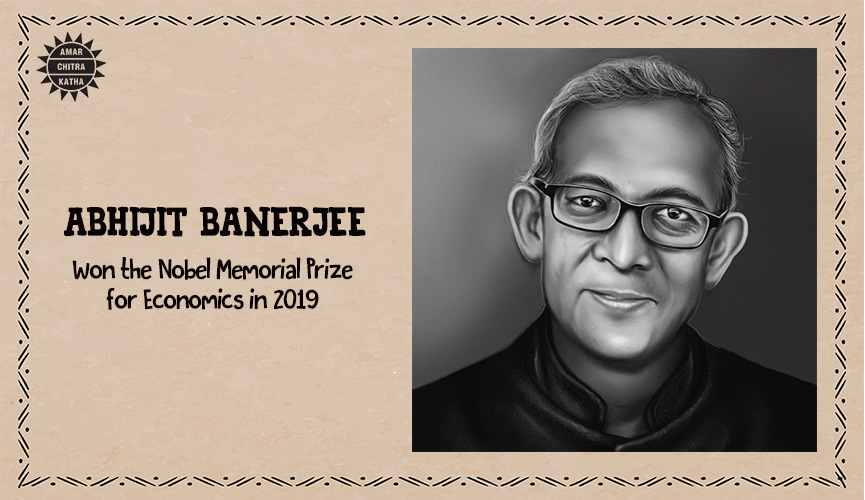
Born on 21 February 1961, in Mumbai, Maharashtra, Abhijit Banerjee, is an Indian-born American economist. He received his B.Sc. (Honours) degree in Economics from the University of Calcutta in 1981. Later, he completed his M.A. in Economics at the Jawaharlal Nehru University (JNU), Delhi, in 1983 and earned his Ph.D. at Harvard University in 1998. He taught students for some time at Harvard University and Princeton University and is currently a professor at the Massachusetts Institute of Technology (MIT). In 2004, Banerjee was elected as a Fellow of the American Academy of Arts and Sciences. Together with his wife Esther Duflo and fellow researcher Michael Kremer, he started working on a new methodology for the reduction of global poverty. In 2019, Banerjee shared the Nobel Memorial Prize in Economic Sciences with Esther Duflo and Michael Kremer, ‘for their experimental approach to alleviating global poverty’. With this win, Abhijit Banerjee and Esther Duflo, became the sixth married couple to jointly win a Nobel Prize.
Read the biographies of more such visionaries and thinkers, only on the ACK Comics app!
To receive more such stories in your Inbox & WhatsApp, Please share your Email and Mobile number.
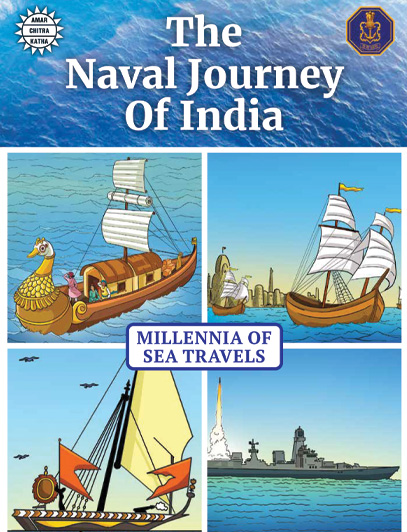
Comic of The Month
The Naval Journey of India Book I
This book is the first of a three-book series that takes a deep and detailed look at India's Naval History and a deep insight into the lives of our men and women in white. But any series on the Indian Navy has to start at the very beginning - exploring India's celebrated maritime history. Join our little hero, Bharat, and his grandfather, Commodore Sagar, as they sail into the deep blue waters of time. Book I of The Naval Journey of India takes a sweeping look at India's maritime endeavours, how the seas impacted us over millennia and how the oceans made us who we are.